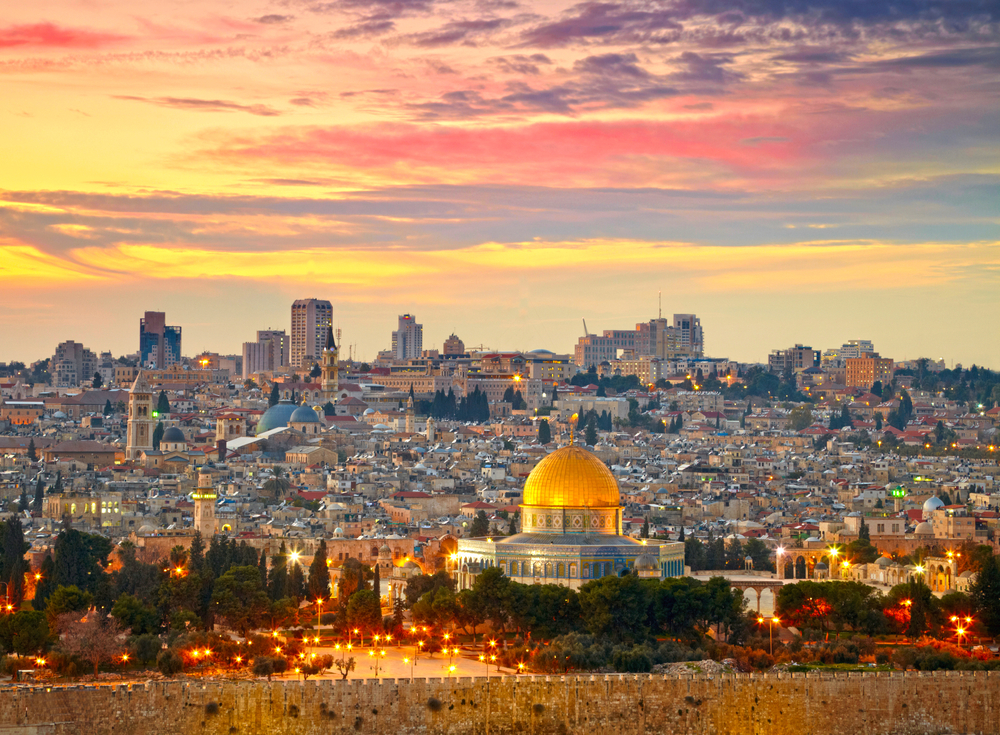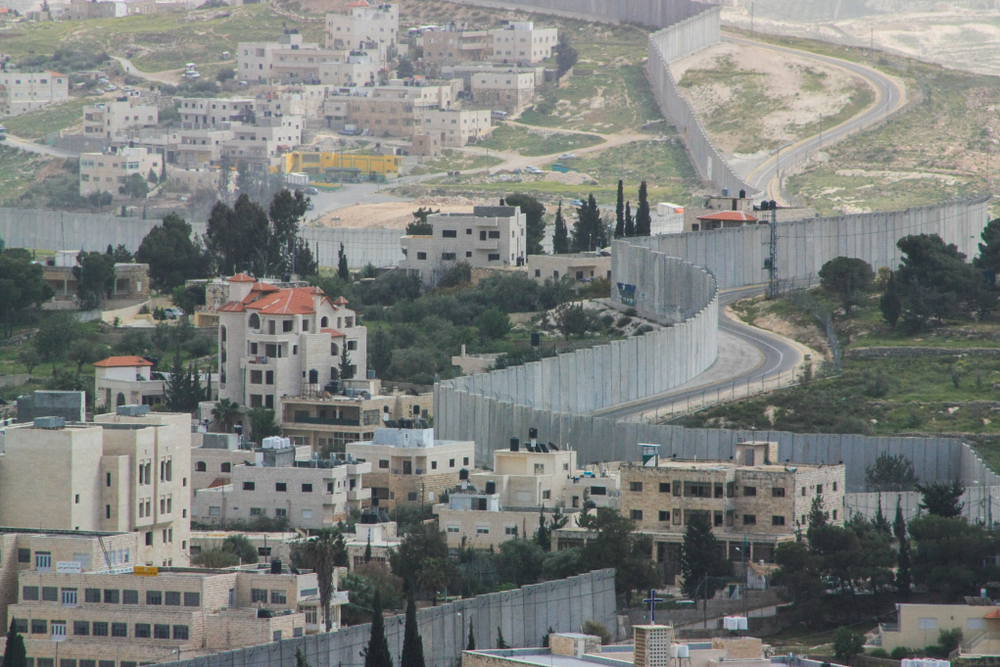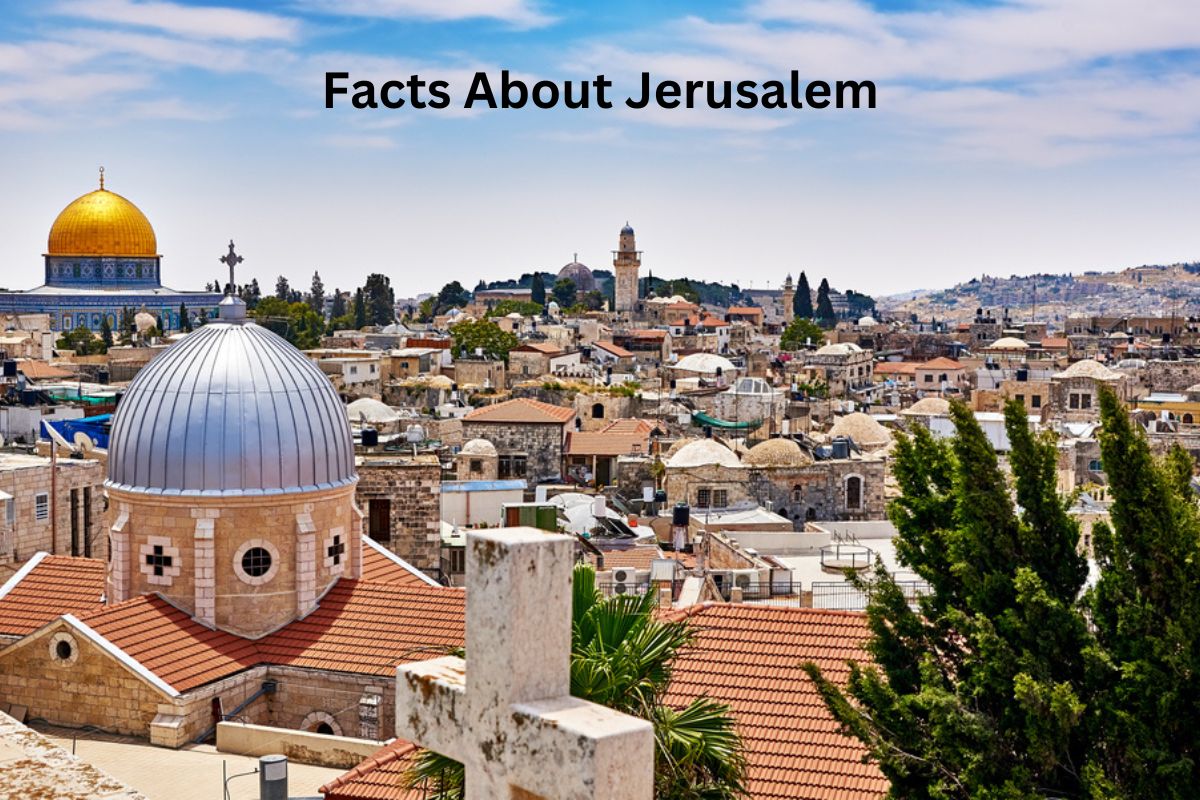Jerusalem, one of the world’s oldest and most revered cities, is a place where history, religion, and geopolitics converge. Located in the heart of the Middle East, this ancient city has been a center of religious worship, cultural exchange, and political conflict for millennia.
It holds profound significance for Judaism, Christianity, and Islam, housing sacred sites like the Western Wall, the Church of the Holy Sepulchre, and the Dome of the Rock.
The city’s rich history includes periods of conquest, division, and reunification, making it a symbol of both religious diversity and political controversy.
Today, Jerusalem continues to captivate visitors with its archaeological treasures, vibrant culture, and its central role in the Israeli-Palestinian conflict.
Jerusalem Facts
1. One of the World’s Oldest Cities
Jerusalem is widely recognized as one of the oldest continuously inhabited cities in the world. Its history can be traced back more than 3,000 years.
Also Read: History of Jerusalem Timeline
Throughout its long history, it has witnessed countless civilizations, conflicts, and changes, contributing to its rich and complex cultural heritage.

2. Holy City in Judaism, Christianity, and Islam
Jerusalem holds immense religious significance for three major world religions:
- Judaism: For Jews, Jerusalem is considered the holiest city. The Western Wall, also known as the Wailing Wall, is a remnant of the Second Temple and is a focal point of Jewish prayer and pilgrimage. Jews face the Western Wall during prayer and visit it to place written prayers in its crevices.
- Christianity: Jerusalem is central to Christianity as the place where many significant events in the life of Jesus Christ occurred, including his crucifixion and resurrection. The Church of the Holy Sepulchre, located in the Christian Quarter of the Old City, is one of the most sacred sites for Christians worldwide.
- Islam: In Islam, Jerusalem holds significance as the third holiest city after Mecca and Medina. The Dome of the Rock, situated on the Temple Mount, is believed to be the spot from which the Prophet Muhammad ascended to heaven during the Night Journey. The Al-Aqsa Mosque is also a significant Islamic religious site on the Temple Mount.
3. Divided into Four Quarters in the Old City
The Old City of Jerusalem, a UNESCO World Heritage Site, is a historical and religious epicenter, and it is divided into four distinct quarters:
- Jewish Quarter: The Jewish Quarter is home to the Western Wall, the Cardo (a reconstructed ancient street), and several synagogues. It is a significant religious and cultural center for Jewish life.
- Christian Quarter: The Christian Quarter houses numerous Christian holy sites, including the Church of the Holy Sepulchre, the Via Dolorosa (believed to be the path that Jesus walked on his way to crucifixion), and various Christian churches and monasteries.
- Muslim Quarter: The Muslim Quarter is home to the Dome of the Rock, the Al-Aqsa Mosque, and bustling markets known for their vibrant atmosphere and traditional foods.
- Armenian Quarter: The Armenian Quarter is characterized by its distinct architecture and is home to the Armenian Patriarchate and various churches and cultural institutions.
The coexistence of these four quarters, each representing a different religious and cultural tradition, makes the Old City of Jerusalem a unique and spiritually significant place for people of diverse backgrounds.
4. Capital of Israel
Jerusalem serves as the capital of the State of Israel. This status is both symbolic and highly contentious due to the Israeli-Palestinian conflict. Israel declared Jerusalem as its capital in 1949, shortly after its establishment as a modern state.
Also Read: Western Wall Facts
However, this move was not internationally recognized, and most countries, including the United States, initially maintained their embassies in Tel Aviv, not Jerusalem.
In 2017, the United States officially recognized Jerusalem as Israel’s capital and moved its embassy there, a decision that sparked significant controversy and protests.

5. The Western Wall (Wailing Wall) is a Sacred Jewish Site
The Western Wall, often called the Wailing Wall, is one of the most sacred sites in Judaism. It is a remnant of the retaining wall that surrounded the Second Temple, which was destroyed by the Romans in 70 CE.
The Western Wall is not a synagogue but a place of prayer, reflection, and pilgrimage for Jews from around the world. Visitors place written prayers or notes in the wall’s crevices. It is customary for Jewish people to approach the wall, touch it, and recite prayers.
The wall’s name “Wailing Wall” comes from the tradition of lamentation and mourning for the destruction of the Temple.
6. Temple Mount is Holy for Jews and Muslims
The Temple Mount, known as “Haram al-Sharif” in Islam, is one of the most religiously significant sites in the world. It is revered by both Jews and Muslims but holds different religious meanings for each:
- Judaism: Jews believe the Temple Mount to be the location of the First and Second Temples, which were central to Jewish religious life and worship. The Western Wall, as mentioned earlier, is the most accessible remnant of these temples. Jewish tradition holds that the Temple Mount will be the site of the Third Temple in the future.
- Islam: In Islam, the Temple Mount houses the Dome of the Rock and the Al-Aqsa Mosque. The Dome of the Rock is an iconic golden-domed shrine believed to be the spot where the Prophet Muhammad ascended to heaven during the Night Journey. The Al-Aqsa Mosque is one of the oldest mosques in Islam and holds special religious significance.
The Temple Mount remains a focal point of tension and conflict in the Israeli-Palestinian conflict due to its dual religious importance and political significance.
Access to the site is governed by complex agreements and restrictions, and any changes to its status can lead to regional and international tensions.
7. City of David is an Ancient Archaeological Site
The City of David is an archaeological site located just outside the walls of the Old City of Jerusalem. It is believed to be the original site of Jerusalem and holds great historical significance.
Excavations in the City of David have uncovered ancient structures, artifacts, and a wealth of historical information. It offers a window into the city’s early history, including its Canaanite, Israelite, and First Temple periods.
Visitors can explore the archaeological findings and gain insights into Jerusalem’s ancient past.

8. History of Sieges and Conquests
Jerusalem has a tumultuous history of being besieged, conquered, and ruled by various empires and kingdoms throughout the centuries.
Notable historical events include the Babylonian capture of Jerusalem in 587 BCE, leading to the destruction of the First Temple, and the Roman capture in 70 CE, resulting in the destruction of the Second Temple.
Jerusalem has also been ruled by the Byzantines, Arabs, Crusaders, and Ottomans, among others. Its history is marked by periods of prosperity and hardship, reflecting its strategic and religious significance.
9. Divided Between Israel and Jordan Until 1967
From 1948 to 1967, Jerusalem was divided between Israel and Jordan. During this time, the western part of the city, including the New City and the western half of the Old City, was under Israeli control, while the eastern part, including the eastern half of the Old City, was administered by Jordan.
The division resulted from the 1948 Arab-Israeli War. Access to religious sites in the divided city was restricted, and tensions ran high.
10. Ottoman-Era City Walls
The current walls of the Old City of Jerusalem were constructed during the Ottoman Empire in the 16th century. These walls were built by the famous Ottoman architect Mimar Sinan during the reign of Sultan Suleiman the Magnificent.
They are a remarkable example of Ottoman military architecture and have helped preserve the Old City’s historical character. The walls include gates such as Jaffa Gate, Damascus Gate, and Lions’ Gate, each with its unique architectural features and historical significance.
11. Home to Museums and Cultural Institutions
Jerusalem is a cultural hub with a wide range of museums, theaters, and galleries that showcase its rich history and contemporary art and culture. Some notable cultural institutions in Jerusalem include:
- The Israel Museum: This world-renowned museum houses an extensive collection of art and artifacts, including the Dead Sea Scrolls, a vast array of Jewish and Israeli art, and archaeological treasures.
- Yad Vashem: Yad Vashem is Israel’s official Holocaust memorial and museum. It is a solemn and educational institution dedicated to preserving the memory of the Holocaust and honoring its victims.
- Tower of David Museum: Located in the medieval citadel known as the Tower of David, this museum traces the history of Jerusalem from ancient times to the present through multimedia exhibits and archaeological findings.
- Jerusalem Theater: This cultural center hosts a variety of performances, including concerts, ballet, theater productions, and art exhibitions.
- Bible Lands Museum Jerusalem: This museum focuses on the history and culture of the ancient Near East and features a diverse collection of artifacts from biblical times.
These institutions contribute to Jerusalem’s status as a center for art, culture, and education.

12. Ongoing Controversy in the Israeli-Palestinian Conflict
Jerusalem’s status remains one of the most contentious and central issues in the Israeli-Palestinian conflict. Both Israelis and Palestinians have claims to the city as their capital, leading to complex and sensitive negotiations.
The city’s political status, borders, and sovereignty are subjects of ongoing international diplomacy and peace efforts. The resolution of the Jerusalem question is seen as a crucial step toward a lasting Israeli-Palestinian peace agreement.
13. A City of Immense Historical and Religious Importance
Jerusalem’s significance cannot be overstated. It is a city where history, culture, and spirituality intersect. For billions of people worldwide, Jerusalem represents a focal point of faith, pilgrimage, and devotion. It has played a central role in shaping the religious traditions of Judaism, Christianity, and Islam, making it a place of deep reverence and historical importance.
Beyond its religious and historical significance, it is a dynamic and vibrant modern city. Its diverse population reflects a mix of cultures, religions, and traditions, contributing to its unique character.
Jerusalem’s rich tapestry of history, religion, and contemporary life continues to draw visitors from around the globe who come to explore its ancient sites, engage with its complex political reality, and experience its vibrant culture.
